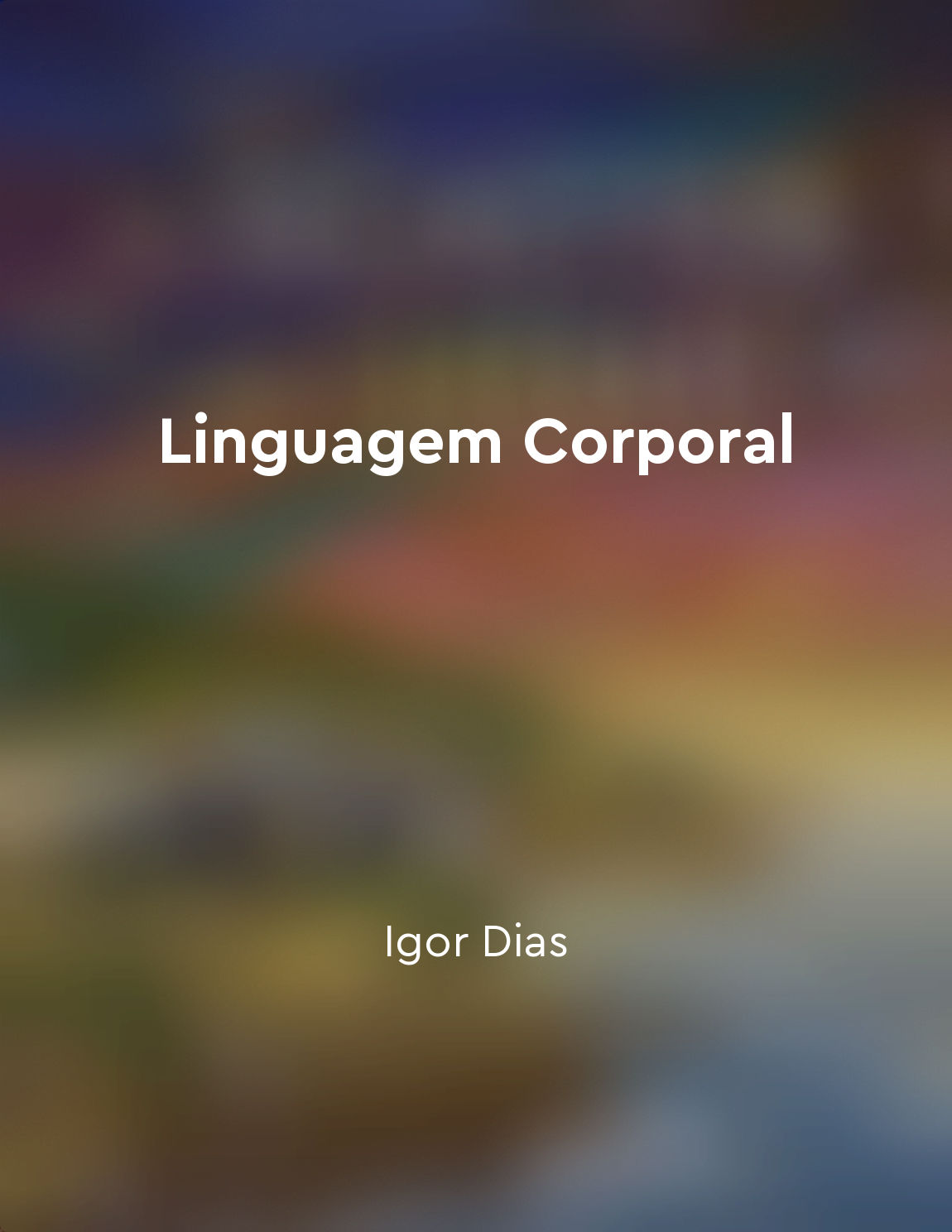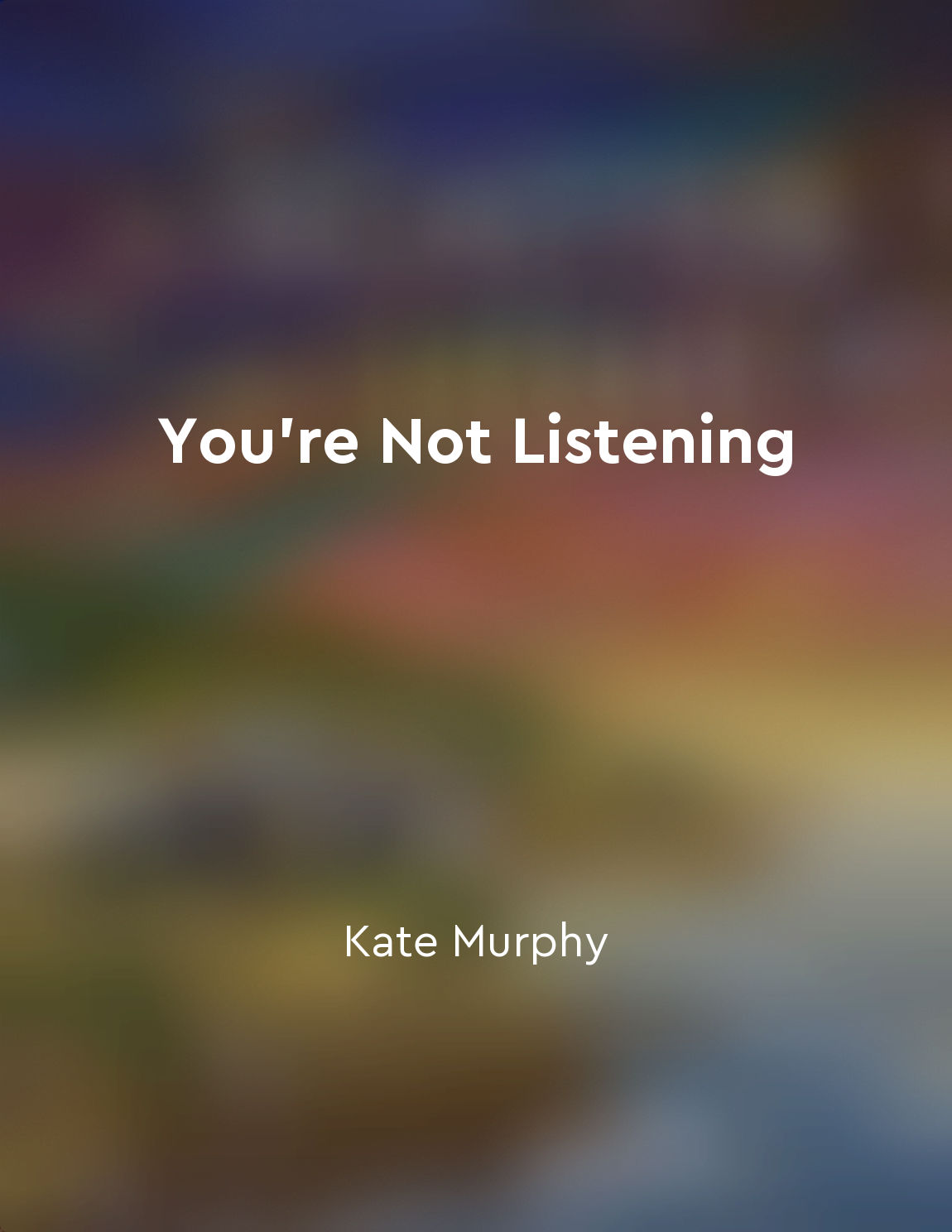Facial expressions can reveal a person's emotions from "summary" of How to Read a Person Like a Book by Gerard I. Nierenberg
Facial expressions can reveal a person's emotions. The face is like a mirror that reflects what is going on inside a person's mind and heart. Every smile, frown, squint, or raised eyebrow can provide valuable insights into how a person is feeling at any given moment. It is important to pay close attention to these subtle cues in order to truly understand and connect with others. When someone is happy, their face will typically light up with a genuine smile. The corners of their eyes may crinkle, and their cheeks may lift. On the other hand, when someone is sad, their brow may furrow, and their mouth may turn downward. Their eyes may appear dull or watery, reflecting their inner turmoil. These facial expressions are universal indicators of basic emotions that transcend language barriers. In addition to basic emotions like happiness and sadness, facial expressions can also reveal more complex emotions such as anger, fear, surprise, and disgust. When someone is angry, their nostrils may flare, their lips may press together tightly, and their eyes may narrow. This combination of facial cues signals to others that the person is feeling threatened or frustrated. Similarly, when someone is afraid, their eyes may widen, their eyebrows may raise, and their mouth may open slightly. These instinctual reactions are designed to help the person scan their environment for potential threats and react accordingly. By understanding these subtle facial cues, we can better empathize with others and respond appropriately to their emotional state. It is important to remember that facial expressions are just one piece of the puzzle when it comes to understanding a person's emotions. Body language, tone of voice, and context all play a role in deciphering how someone is feeling. By paying attention to these various cues and integrating them into our interactions with others, we can develop stronger relationships and communicate more effectively.Similar Posts
Use visual aids to enhance understanding
Visual aids can be a powerful tool in enhancing understanding. When we present information to others, whether in a meeting, a p...
Use gestures to emphasize key points in communication
Gestures are a powerful tool in communication, as they can help to emphasize key points and make your message more impactful. W...
Don't jump to conclusions
Jumping to conclusions can be a tempting habit in our fast-paced world. When we hear something that triggers a familiar respons...
Active listening is a key component of communication
Active listening plays a crucial role in effective communication, particularly in social and human services settings where indi...

Being mindful of body language improves communication
Understanding body language is essential for effective communication. It is a silent form of communication that can convey emot...
Active listening is a powerful tool for improving relationships
Active listening, undoubtedly, plays a crucial role in enhancing the quality of our relationships. It is more than just hearing...
Vocabulary expansion aids in expressing thoughts effectively
One of the key elements in communicating effectively is the ability to express thoughts clearly and coherently. This is where v...
Utilize subconscious influence tactics
Subconscious influence tactics are powerful tools that can be used to persuade others without them even realizing it. By tappin...

Open body language fosters trust and rapport
Open body language is a crucial element in building trust and rapport with others. When we adopt open body language, we are con...

We should prioritize listening in our relationships
Listening is the cornerstone of any successful relationship. When we truly listen to someone, we show them that we value and re...
